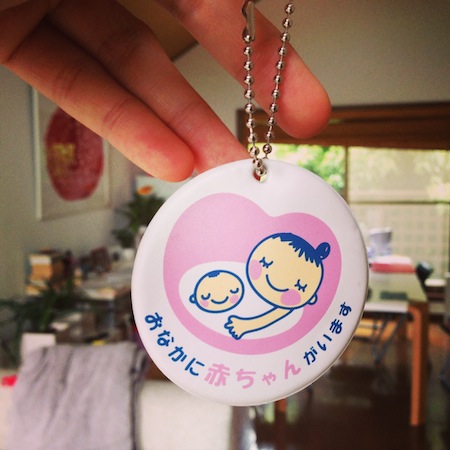Japan is fascinating in many ways, but in this post, I picked out 5 things that are most interesting to me as a Singaporean. The things that are so different from how things are in Singapore.
1. The zebra crossing is for the pedestrian to give way to the vehicle
Not a typo.
Seriously, the cars here DO NOT slow down at a zebra crossing. I was so shocked the first time the car just zoomed past. I thought it was just a crazy driver.
But it happened again.
And again and again.
It’s really strange considering how courteous Japanese drivers can be, and it IS in the driving regulations to give way to the pedestrian.
Am I just super suay and meet only horrible drivers at zebra crossings?
Edit: After getting my Japanese license, I finally realize why. There are simply too many zebra crossings and it can actually be dangerous to stop. Oh alright, I admit that it’s also a drag to stop because of the sheer number of zebra crossings and traffic lights combined. And unless there is a 止まれ (stop) sign – which most zebra crossings do not have – drivers are not required by law to stop.
2. Locals do not walk while eating
In general, locals do not do this. There will either be a place near the food store to stand/sit and eat, or they pack it home.
I really don’t know how they resist all the delicious food and can wait till they get home to eat it! Especially in “Depa-chika” (デパ地下; basements of department stores) where entire floors of food tempt and taunt.
Lots of people buying, none eating!
I try to fight the temptation, but I usually cave and find some corner to quickly chow down whatever I bought .__.
3. It’s highly challenging to locate a dustbin
Probably due in part to point 2. Because they don’t walk while eating, they won’t have rubbish that they need to throw out immediately.
Also, rubbish in Japan is sorted so it would be very inconvenient to have lots of rubbish bins because each bin would need to have several compartments for the different types of rubbish. Combustibles, incombustibles, plastic bottles, cans, etc.
Holding on to my rubbish for hours or even till I get home is a common occurrence.
4. Smoking in air-conditioned eating places is normal
In many restaurants, smoking is permitted. YES. EVEN IN AIR-CONDITIONED PLACES.
Not just Japanese restaurants, but even places like McDonald’s.
There will be smoking and non-smoking seating, but it really doesn’t making a damn difference!
The seats are usually separated purely by area, and not partitioned. The smoke will circulate throughout the entire restaurant so even if you are in the non-smoking area, you will still get the smoke!
I think there are just too many people who smoke in Japan, and it works against their interests to completely ban smoking.
Some places are starting to implement no smoking regulations during peak hours (but still allow them outside of the peak hours).
It’s changing slowly, I guess. BUT NOT FAST ENOUGH.
What I hate is smokers who eat AND smoke at the same time. WTF. Eat or smoke – Make up your mind!
I also hate smokers who puff away in front of their kids. So terrible for their health, not to mention the kind of impression the kids will grow up with!
5. On trains, it is not common to give up seats
This is the one that surprised me. Japanese are so considerate – They set their phones to silent on the train. They speak in hushed voices in a corner of the train in the rare event they have to use the phone. They keep to the left of the escalator.
Yet it doesn’t matter if it’s a very pregnant lady, an elderly person, a mother with an infant and two young children… it’s rare that anyone ever gives up their seat to them!
My good friend who was working in Japan when she was pregnant testifies to it. She takes the train to and from work every day, and RARELY did anyone give up their seat even though she was standing RIGHT IN FRONT of the reserved seats, and displaying the Preg Tag on her bag.
You know how it’s sometimes difficult to tell if a lady is preggers or just… er, fat? This Preg Tag (my naming) is there to let people know for sure that “Yes! She’s pregnant!” and for them to be careful around you, etc.
A Japanese living in Singapore once commented, “Japanese are polite but not kind. Singaporeans are not polite, but are kind”.
Do you agree?
————————————————-
Honestly, it was quite difficult picking out 5 to write about because I wrote down a lot more!
Maybe for a future Part 2!





Hi!!
I´m from mexico and I agree with all your points!
It´s seems that mexican culture and Singapore one are like the same!!! because we think the same way, and feel the same way!
Junocosplay:
That’s interesting to know! What other things do you find different in Japan from Mexico?
Hey there Rin! Thanks for the article, found it useful. Just wondering, are you living in Japan on a long-term basis? Working / studying there? I’m a fellow Singaporean too and I’m thinking of landing an English-teaching job in Japan. However, I’m only equipped with a Diploma. I’ve been doing some homework on this topic hence, the finding of your blog. Wish you could enlighten me on what’s it like for a Singaporean to live and work in Japan, and what to expect right after I leave my home for Japan. Take your time.. haha.
Hello Twiggy,
Yes, you can say that I’m here on a mid to long-term basis :)
Incidentally, I was teaching English in Japan previously and back then, it was difficult for a Singaporean to get a English-teaching job because we are not considered “native” speakers of English by traditional hiring standards. In order to get a working visa, it was also necessary to have a degree. I’m not sure if this has changed, but I’m sure your research will turn up the answers.
As for what living in Japan is like… I suppose one way is to read this blog ;) The latest post might also be of interest to you.
As to what to expect, the first to hit you will definitely be the language. Of course the culture as well. But it’ll certainly be an adventure, or at least it was, and still is, for me :)
Ahh I see. Alright then, I’ll visit this blog often from now on as part of my homework! :D
Just a couple of questions more (sorry): Are you there alone? And did you get there via the JET Programme?
Sorry for the questions. I’m trying to understand life in Japan from a Singaporean’s perspective.
よろしくおねがいします
The answer to both your questions is nope :)
Hi Rin,
Just curious, where and how did you managed to get a teaching job in Japan? I too would like to apply for one but lady luck isn’t with me! Please advise! Thanks lots!
Hi Ting, I don’t remember exactly where I found the job since it’s been many years since.
But what I basically did was I sent my resumes everywhere. I mean literally EVERYWHERE. I think I must have sent out close to 50. Or at least it felt like it.
Of those I sent out, I only got ONE reply. But that was the one that counted since I got the job.
If you’re really keen on teaching in Japan and not picky about location, the JET programme is a good one to try, since they accept Singaporeans, whereas most companies here do not recognise Singaporeans as native English speakers (and thus will throw out your resume without a second thought).
I believe JET also pays much better. The only downsides are a long application process and inability to pick where you are placed (there’s a good chance you will be posted to the countryside).
In short, I think JET is your best bet. But in the meantime, try and apply any and everywhere. Websites like eslcafe, eltnews, etc that have job postings.
Oh, one last thing. If you have JLPT scores or knowledge of the Japanese language, it helps to include it in your resume as well. I also took the TOEIC test back then and included it as well. (not sure how much good that did, but I suppose every bit counts?)
Good luck! :)
Thanks lots! I’ve been sending out many as well….gotten a reply and they just gone missing…(-.-)”’ but I’ll just keep trying!! Thanks lots!!!
You’re welcome :)
All the best!